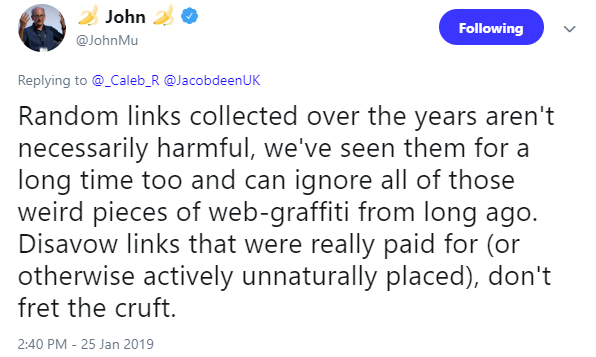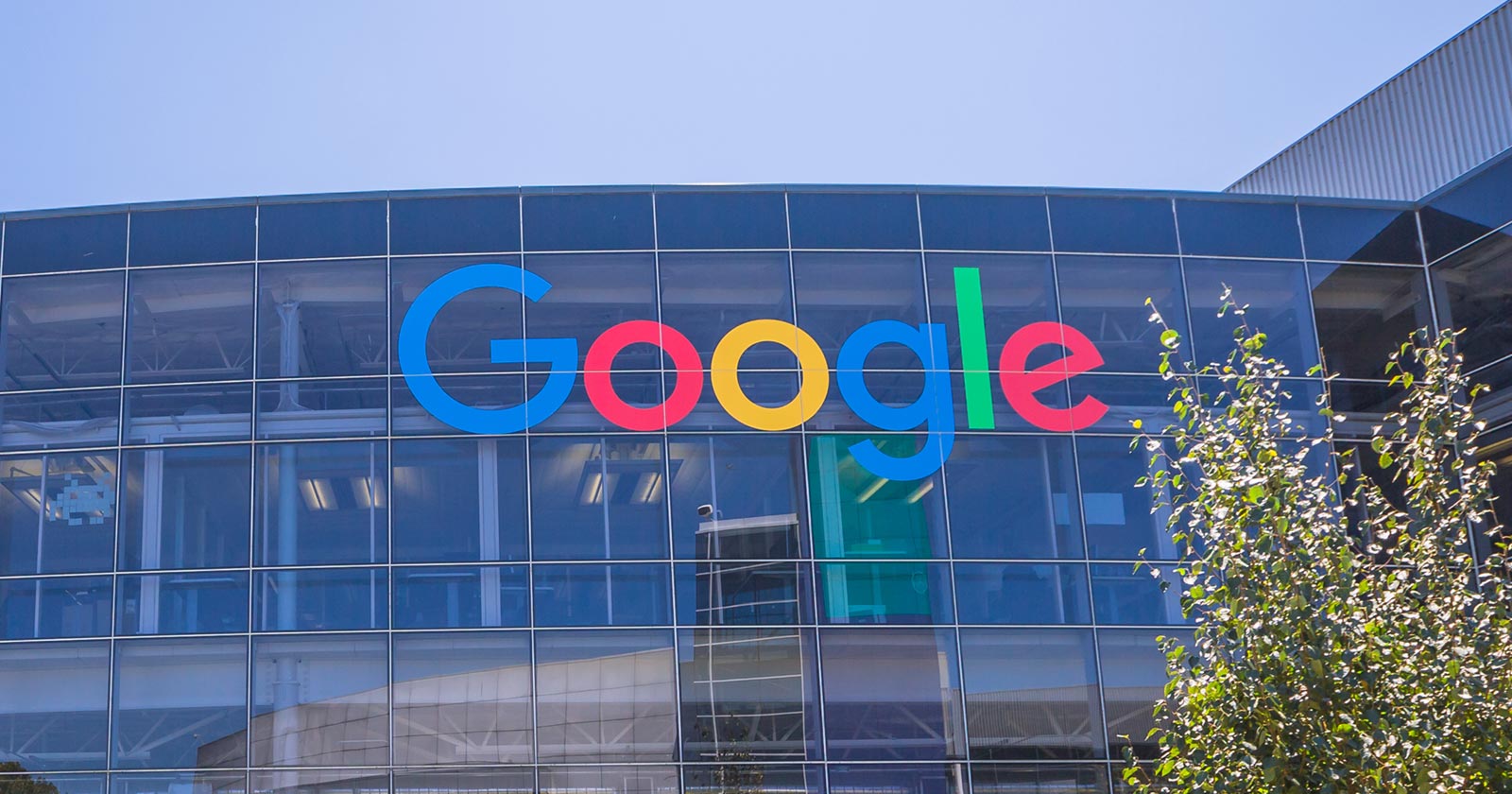SEO
Is SEO Best Practice the Enemy of Success?

In an industry that abounds in folklore and celebrity influencers, is SEO “best practice” the key to mastering the SERPs or a shallow goal that leads to missed opportunities?
What is “best practice,” who defines it, and why is it so widely adopted?
What Is ‘Best Practice’?
“Best practice” tends to refer to a method of working that has been generally accepted as better than others at achieving a result.
When we speak about SEO “best practice” it conjures images of page title lengths, word-counts, and Domain Authority thresholds.
It suggests that there is an accepted method of optimizing websites to make them more appealing to the search engines.
The Benefits of Best Practice
There are positives to be found from having a widely agreed set of practices. There is a reassurance that can be felt by both practitioners and their clients.
Security for Practitioners
SEO is an industry that still has so many unknowns.
When you first start out in this industry ranking a webpage can feel like a mix of science and magic.
Best practice gives us the security that we are working in a way that may generate results. It gives comfort and a clear path to follow to those who have no experience.
Security for Clients
Best practice also gives clients and stakeholders a feeling of security.
If they are familiar with some aspects of SEO, knowing that their appointed experts appear to be following those guidelines assures them of their legitimacy and potential success.
The Issues with Best Practice
There are, however, downsides to accepting a set of practices that you have not tested yourself.
Deciding on ‘Best Practice’
“Best practice” is a noble goal, it suggests there is a right and wrong way of acting and that can clearly be defined.
One problem with it within the SEO industry is that even the more common tenants are disputed amongst professionals.
Without confirmation from the search engines, arguments abound.
As seen in recent Twitter conversations following Moz’s Britney Muller’s discovery of a contentious statement in a Google document, we can’t even agree on whether click-through rate is a Google ranking factor.
If seasoned professionals are unsure of what constitutes a ranking factor, the widely believed “best practice” for this industry could be leading us all astray.
Differences
“Best practice” also suggests there is only one route to success. In SEO however, there are many facets to growing traffic.
Back in 2017 Google’s Gary Illyes stated in relation to a question about top ranking factors that “it very much depends on the query and the results which signals count more.”
How then can we suggest that there is a “best” way to optimize a page if the signals that determine its ranking are weighted differently for each search query?
Ammunition for the Competition
The touting of best practice is often the opening gambit of SEO agencies trying to get a foot in the door with a new business.
Often the lack of an H1 on a terms and conditions page, or a missing robots.txt is listed as a fundamental flaw in the optimization of a site bringing doubt over clients’ minds of the efficacy of their incumbent provider.
In reality, however, such a small detail is unlikely to bring the website to its knees as the try-hard agency might allude.
Cost
The other concern with best practice is that ticking all of those boxes can be costly.
If the only purpose of including a robots.txt file is to have one then this might not be a good use of an SEO or a developer’s time.
The resource and financial implications of following best practice can result in more important tasks that have the propensity to move the needle being relegated due to time and resource restraints.
How Was SEO ‘Best Practice’ Formed?
Determining if SEO best practice is a help or a hindrance really hinges on how it has formed and is followed.
It could be argued that best practice within the industry doesn’t really exist.
With so many methods shared and taught, however, there is definitely a set of traditions that individuals either trust or have actively rejected.
Formulas
There are many detailed and valuable guides to SEO for beginners.
They help to signpost the way forward for those who have never optimized for search engines before.
They shine a light on the way search engines work, what they favor, and how websites can capitalize on that.
The real issue with these mediums is not the resources themselves, but how SEO professionals approach them.
They should be treated like a car manual, telling you all you need to know about how the vehicle works, what the warning lights look like, and how to fix the engine if it goes wrong.
Armed with this knowledge we can feel confident to drive off into unchartered territory and explore.
Instead, some have fallen into the trap of approaching these guides like a sat-nav, fully expecting them to guide us to our desired destination of Position 1.
Many of us don’t take the time to wonder though, how is it that webpages with thin content, non-existent backlink profiles or poor meta-tag usage are ranking higher than our own, finely optimized sites?
Unfortunately, the answer would appear to be that sometimes the search engines do not behave in the way we expect them to.
When we try to follow best practice, we are in fact trying to abide by a set of rules that the likes of Google have not backed.
It is like only ever filling your car up with a certain brand of fuel because your local car owners’ forum tells you it’s the best one.
It might actually be the most expensive and unless you experiment with other types of fuel, or the manufacturer confirms the engine was built to perform best with it, why would you take that suggestion as gospel?
Unless there is evidence to back up this claim it would be foolish to assume it is correct.
Search engines are complicated, and the truth is, the algorithms are not known outside of the organization that developed them.
Any attempt to categorically state that they work in a particular way, unless confirmed by the company themselves, is naïve.
Instead, we should use the guides and checklists as our jumping-off point. They should form the start of our testing, holding our hands as we enter the murky world of SEO.
Influencers
The word “influencer” may conjure up images of make-up mavens, heavily filtered images and exotic backdrops, all hoping to persuade you to buy a product so they get a cut of the sale.
Apart from the odd entrepreneur who is trying to flog their latest online course, the SEO community taking part in social media and forums is largely trying to disseminate information and help others in their quest to improve.
These may be for purely altruistic reasons. It might be to increase their own profile. The result is the same; there are a lot of “experts” in this space touting their view on how SEO works.
There is nothing wrong with professionals who have gained experience and wish to share it with others, it truly is a selfless act.
The problem again is how we approach the insights given by these experts.
The barrier to becoming an SEO influencer is low. How do you decide who is a credible person to pay attention to?
There is the additional problem of differing opinions. There are many well-respected SEO professionals who take the time to really engage with their following.
These people give advice based on their years of experience. There are others with as large a following and impressive a career history who totally disagree with the advice they give.
So who is right?
Whenever I hear SEO best practice discussed, a tweet is often used as the evidence to substantiate it; “I saw [SEO influencer] say on Twitter that click-through rates are a ranking factor”.
Before we know it, this becomes lore.
Agencies hold meetings to update their teams, blog posts are written and strategies are altered to accommodate this new insight.
The issue with the blind following of others’ advice is that it might not be right.
It could be correct for what that SEO has seen on their own site, or within that particular vertical, but how can it be guaranteed that it will be the case for our own?
Best practice seems to pass down the lineage of SEOs through word of mouth. Juniors trust that what their seniors say is correct.
If those seniors are trusting what they see on Twitter without testing and questioning then the industry becomes rife with information that is inaccurate.
At best, the information being spread forms another checklist.
Examples of Damaging ‘Best Practice’ Myths
There are many best practice rules that can be questioned. Below are a few persistent ones that are often championed without question.
Meta Title Character Limits
Sixty characters maximum or your rankings will suffer. That’s a myth that seems to raise its head ever so often and particularly amongst newer SEO practitioners.
Although truncation does occur on both mobile and desktop SERPs, this differs between devices and search engines.
This image is an example of a page’s title truncated in the desktop search results.

This image shows the same page’s title truncated in the mobile SERPs

Google’s own guidelines on writing page titles suggest we “avoid unnecessarily long or verbose titles, which are likely to get truncated when they show up in the search results.”
There is no maximum character limit stated, however.
In fact, as discussed by Moz, “there’s no exact character limit, because characters can vary in width and Google’s display titles max out (currently) at 600 pixels.”
Imagine an “I” compared to a “W”, these take up a differing number of pixels. Sixty wide characters might take up more than 600 pixels, whereas 60 thinner characters may leave space for more letters.
My agency, Avenue Digital, recently ran an experiment to see if Google reads and indexes keywords past the truncation point.
We found that Google did pick up the keywords in the title, despite them being truncated.
This suggests that the arbitrary character limit is unnecessary for ranking purposes and therefore only needs to be considered for click-through optimization.

The issue with keeping your page titles to 60 characters or fewer means your goal of avoiding truncation in the SERPs might not be achieved and you could well be missing out on valuable keyword real-estate.
As Google is picking up words after the point of truncation and ranking the page based on those keywords (although to what degree these keywords are factored into rankings remains undetermined), then it would be foolish to miss out on this opportunity to include keywords that could help your rankings.
Include a Robots.txt File
Often one on the checklist when auditing a website is the robots.txt. It doesn’t seem to go further than that.
Now, what does the file contain?
Is it necessary considering the set-up of the site?
More often, simply, is there one present?
The presence of a robots.txt is not going to impact the crawling, indexation, or ranking of your website.
Therefore, when this point is raised in audits or adding a robots.txt is escalated as an urgent task, it is another example of best practice being followed blindly without consideration for the benefits.
When a task is executed without any clear understanding of what it is hoped to achieve then the cost of implementation should be ruled prohibitive.
Disavow All Bad Backlinks
The Google Search Console disavow tool is dangerous. It allows people with little knowledge of what they are doing to easily decimate years of constructive outreach efforts.
One common assertion in the SEO industry is that “bad” backlinks should be disavowed.
However, with recent iterations of the Google algorithm, even Google spokespeople have stated that for the majority of sites the disavow tool is not needed.
Google’s own John Mueller has declared that we shouldn’t “fret the cruft” when using the disavow tool.
That it is really designed for use with links that you intentionally built that go against Google’s guidelines, not the ones that have organically grown in your backlink profile over the years.

Following the “best practice” advice of disavowing any “spammy” link can damage your success. It takes time and resources away from work that could actually benefit your SEO rankings and traffic.
It can also lead to genuinely helpful backlinks being disavowed because their origin is unknown or they are misunderstood to be harmful links.
Copy Length
Another myth of the best practice lore is that copy needs to be long in order to rank.
When asked by copywriters or clients how long a piece of copy should be “for SEO” we’ll often reply “the longer the better.”
Some may even give a word count minimum, such as 800 words or even longer.
However, this is not necessarily accurate. It is more correct to say that copy should be as long as is needed to convey an adequate answer to a searcher’s query.
For example, when searching “what is the weather like in Portugal”, the first organic listing in my SERPs is https://www.theweathernetwork.com/pt/14-day-weather-trend/faro/albufeira.
The total word count for copy on this page, discounting anchor text for other pages on the site, is less than 20.
Second place is https://www.accuweather.com/en/pt/albufeira/273200/weather-forecast/273200, which has even fewer non-anchor text words.
These two pages are ranking with barely any copy on them at all because the answer to the searcher’s query can be summarized in a simple graphic showing the temperature over the upcoming week.
Writing copy is a laborious task.
Writing high-quality, well-converting copy is even harder.
Giving copywriters a minimum number of words they have to write for acceptable content is a distracting and unnecessary stipulation that can lead to poor copy being churned out.
For pages where conversion is key having reams of text that does not add value to the reader can be detrimental in achieving a sale or contact.
Conclusion
Best practice should be treated like training wheels.
It:
- Helps us to feel safe when we’re new to the road.
- Gives us the confidence to speak to outsiders and appear knowledgeable.
- Gives routine and ideas when we’re lacking.
But like any training wheels, at some point, they need to be removed so you can ride over more rocky terrain and accelerate.
Following “best practice” can distract from activities that will actually benefit your SEO efforts and in some cases can be harmful.
Use it as a guide in your early days but if you have called yourself an SEO for more than a year it would be worth re-evaluating what you “know” about SEO and seek to prove your knowledge with results.
More Resources:
Image Credits
All screenshots taken by author, June 2019
SEO
Google On Hyphens In Domain Names

Google’s John Mueller answered a question on Reddit about why people don’t use hyphens with domains and if there was something to be concerned about that they were missing.
Domain Names With Hyphens For SEO
I’ve been working online for 25 years and I remember when using hyphens in domains was something that affiliates did for SEO when Google was still influenced by keywords in the domain, URL, and basically keywords anywhere on the webpage. It wasn’t something that everyone did, it was mainly something that was popular with some affiliate marketers.
Another reason for choosing domain names with keywords in them was that site visitors tended to convert at a higher rate because the keywords essentially prequalified the site visitor. I know from experience how useful two-keyword domains (and one word domain names) are for conversions, as long as they didn’t have hyphens in them.
A consideration that caused hyphenated domain names to fall out of favor is that they have an untrustworthy appearance and that can work against conversion rates because trustworthiness is an important factor for conversions.
Lastly, hyphenated domain names look tacky. Why go with tacky when a brandable domain is easier for building trust and conversions?
Domain Name Question Asked On Reddit
This is the question asked on Reddit:
“Why don’t people use a lot of domains with hyphens? Is there something concerning about it? I understand when you tell it out loud people make miss hyphen in search.”
And this is Mueller’s response:
“It used to be that domain names with a lot of hyphens were considered (by users? or by SEOs assuming users would? it’s been a while) to be less serious – since they could imply that you weren’t able to get the domain name with fewer hyphens. Nowadays there are a lot of top-level-domains so it’s less of a thing.
My main recommendation is to pick something for the long run (assuming that’s what you’re aiming for), and not to be overly keyword focused (because life is too short to box yourself into a corner – make good things, course-correct over time, don’t let a domain-name limit what you do online). The web is full of awkward, keyword-focused short-lived low-effort takes made for SEO — make something truly awesome that people will ask for by name. If that takes a hyphen in the name – go for it.”
Pick A Domain Name That Can Grow
Mueller is right about picking a domain name that won’t lock your site into one topic. When a site grows in popularity the natural growth path is to expand the range of topics the site coves. But that’s hard to do when the domain is locked into one rigid keyword phrase. That’s one of the downsides of picking a “Best + keyword + reviews” domain, too. Those domains can’t grow bigger and look tacky, too.
That’s why I’ve always recommended brandable domains that are memorable and encourage trust in some way.
Read the post on Reddit:
Read Mueller’s response here.
Featured Image by Shutterstock/Benny Marty
SEO
Reddit Post Ranks On Google In 5 Minutes

Google’s Danny Sullivan disputed the assertions made in a Reddit discussion that Google is showing a preference for Reddit in the search results. But a Redditor’s example proves that it’s possible for a Reddit post to rank in the top ten of the search results within minutes and to actually improve rankings to position #2 a week later.
Discussion About Google Showing Preference To Reddit
A Redditor (gronetwork) complained that Google is sending so many visitors to Reddit that the server is struggling with the load and shared an example that proved that it can only take minutes for a Reddit post to rank in the top ten.
That post was part of a 79 post Reddit thread where many in the r/SEO subreddit were complaining about Google allegedly giving too much preference to Reddit over legit sites.
The person who did the test (gronetwork) wrote:
“…The website is already cracking (server down, double posts, comments not showing) because there are too many visitors.
…It only takes few minutes (you can test it) for a post on Reddit to appear in the top ten results of Google with keywords related to the post’s title… (while I have to wait months for an article on my site to be referenced). Do the math, the whole world is going to spam here. The loop is completed.”
Reddit Post Ranked Within Minutes
Another Redditor asked if they had tested if it takes “a few minutes” to rank in the top ten and gronetwork answered that they had tested it with a post titled, Google SGE Review.
gronetwork posted:
“Yes, I have created for example a post named “Google SGE Review” previously. After less than 5 minutes it was ranked 8th for Google SGE Review (no quotes). Just after Washingtonpost.com, 6 authoritative SEO websites and Google.com’s overview page for SGE (Search Generative Experience). It is ranked third for SGE Review.”
It’s true, not only does that specific post (Google SGE Review) rank in the top 10, the post started out in position 8 and it actually improved ranking, currently listed beneath the number one result for the search query “SGE Review”.
Screenshot Of Reddit Post That Ranked Within Minutes
Anecdotes Versus Anecdotes
Okay, the above is just one anecdote. But it’s a heck of an anecdote because it proves that it’s possible for a Reddit post to rank within minutes and get stuck in the top of the search results over other possibly more authoritative websites.
hankschrader79 shared that Reddit posts outrank Toyota Tacoma forums for a phrase related to mods for that truck.
Google’s Danny Sullivan responded to that post and the entire discussion to dispute that Reddit is not always prioritized over other forums.
Danny wrote:
“Reddit is not always prioritized over other forums. [super vhs to mac adapter] I did this week, it goes Apple Support Community, MacRumors Forum and further down, there’s Reddit. I also did [kumo cloud not working setup 5ghz] recently (it’s a nightmare) and it was the Netgear community, the SmartThings Community, GreenBuildingAdvisor before Reddit. Related to that was [disable 5g airport] which has Apple Support Community above Reddit. [how to open an 8 track tape] — really, it was the YouTube videos that helped me most, but it’s the Tapeheads community that comes before Reddit.
In your example for [toyota tacoma], I don’t even get Reddit in the top results. I get Toyota, Car & Driver, Wikipedia, Toyota again, three YouTube videos from different creators (not Toyota), Edmunds, a Top Stories unit. No Reddit, which doesn’t really support the notion of always wanting to drive traffic just to Reddit.
If I guess at the more specific query you might have done, maybe [overland mods for toyota tacoma], I get a YouTube video first, then Reddit, then Tacoma World at third — not near the bottom. So yes, Reddit is higher for that query — but it’s not first. It’s also not always first. And sometimes, it’s not even showing at all.”
hankschrader79 conceded that they were generalizing when they wrote that Google always prioritized Reddit. But they also insisted that that didn’t diminish what they said is a fact that Google’s “prioritization” forum content has benefitted Reddit more than actual forums.
Why Is The Reddit Post Ranked So High?
It’s possible that Google “tested” that Reddit post in position 8 within minutes and that user interaction signals indicated to Google’s algorithms that users prefer to see that Reddit post. If that’s the case then it’s not a matter of Google showing preference to Reddit post but rather it’s users that are showing the preference and the algorithm is responding to those preferences.
Nevertheless, an argument can be made that user preferences for Reddit can be a manifestation of Familiarity Bias. Familiarity Bias is when people show a preference for things that are familiar to them. If a person is familiar with a brand because of all the advertising they were exposed to then they may show a bias for the brand products over unfamiliar brands.
Users who are familiar with Reddit may choose Reddit because they don’t know the other sites in the search results or because they have a bias that Google ranks spammy and optimized websites and feel safer reading Reddit.
Google may be picking up on those user interaction signals that indicate a preference and satisfaction with the Reddit results but those results may simply be biases and not an indication that Reddit is trustworthy and authoritative.
Is Reddit Benefiting From A Self-Reinforcing Feedback Loop?
It may very well be that Google’s decision to prioritize user generated content may have started a self-reinforcing pattern that draws users in to Reddit through the search results and because the answers seem plausible those users start to prefer Reddit results. When they’re exposed to more Reddit posts their familiarity bias kicks in and they start to show a preference for Reddit. So what could be happening is that the users and Google’s algorithm are creating a self-reinforcing feedback loop.
Is it possible that Google’s decision to show more user generated content has kicked off a cycle where more users are exposed to Reddit which then feeds back into Google’s algorithm which in turn increases Reddit visibility, regardless of lack of expertise and authoritativeness?
Featured Image by Shutterstock/Kues
SEO
WordPress Releases A Performance Plugin For “Near-Instant Load Times”

WordPress released an official plugin that adds support for a cutting edge technology called speculative loading that can help boost site performance and improve the user experience for site visitors.
Speculative Loading
Rendering means constructing the entire webpage so that it instantly displays (rendering). When your browser downloads the HTML, images, and other resources and puts it together into a webpage, that’s rendering. Prerendering is putting that webpage together (rendering it) in the background.
What this plugin does is to enable the browser to prerender the entire webpage that a user might navigate to next. The plugin does that by anticipating which webpage the user might navigate to based on where they are hovering.
Chrome lists a preference for only prerendering when there is an at least 80% probability of a user navigating to another webpage. The official Chrome support page for prerendering explains:
“Pages should only be prerendered when there is a high probability the page will be loaded by the user. This is why the Chrome address bar prerendering options only happen when there is such a high probability (greater than 80% of the time).
There is also a caveat in that same developer page that prerendering may not happen based on user settings, memory usage and other scenarios (more details below about how analytics handles prerendering).
The Speculative Loading API solves a problem that previous solutions could not because in the past they were simply prefetching resources like JavaScript and CSS but not actually prerendering the entire webpage.
The official WordPress announcement explains it like this:
Introducing the Speculation Rules API
The Speculation Rules API is a new web API that solves the above problems. It allows defining rules to dynamically prefetch and/or prerender URLs of certain structure based on user interaction, in JSON syntax—or in other words, speculatively preload those URLs before the navigation. This API can be used, for example, to prerender any links on a page whenever the user hovers over them.”
The official WordPress page about this new functionality describes it:
“The Speculation Rules API is a new web API… It allows defining rules to dynamically prefetch and/or prerender URLs of certain structure based on user interaction, in JSON syntax—or in other words, speculatively preload those URLs before the navigation.
This API can be used, for example, to prerender any links on a page whenever the user hovers over them. Also, with the Speculation Rules API, “prerender” actually means to prerender the entire page, including running JavaScript. This can lead to near-instant load times once the user clicks on the link as the page would have most likely already been loaded in its entirety. However that is only one of the possible configurations.”
The new WordPress plugin adds support for the Speculation Rules API. The Mozilla developer pages, a great resource for HTML technical understanding describes it like this:
“The Speculation Rules API is designed to improve performance for future navigations. It targets document URLs rather than specific resource files, and so makes sense for multi-page applications (MPAs) rather than single-page applications (SPAs).
The Speculation Rules API provides an alternative to the widely-available <link rel=”prefetch”> feature and is designed to supersede the Chrome-only deprecated <link rel=”prerender”> feature. It provides many improvements over these technologies, along with a more expressive, configurable syntax for specifying which documents should be prefetched or prerendered.”
See also: Are Websites Getting Faster? New Data Reveals Mixed Results
Performance Lab Plugin
The new plugin was developed by the official WordPress performance team which occasionally rolls out new plugins for users to test ahead of possible inclusion into the actual WordPress core. So it’s a good opportunity to be first to try out new performance technologies.
The new WordPress plugin is by default set to prerender “WordPress frontend URLs” which are pages, posts, and archive pages. How it works can be fine-tuned under the settings:
Settings > Reading > Speculative Loading
Browser Compatibility
The Speculative API is supported by Chrome 108 however the specific rules used by the new plugin require Chrome 121 or higher. Chrome 121 was released in early 2024.
Browsers that do not support will simply ignore the plugin and will have no effect on the user experience.
Check out the new Speculative Loading WordPress plugin developed by the official core WordPress performance team.
How Analytics Handles Prerendering
A WordPress developer commented with a question asking how Analytics would handle prerendering and someone else answered that it’s up to the Analytics provider to detect a prerender and not count it as a page load or site visit.
Fortunately both Google Analytics and Google Publisher Tags (GPT) both are able to handle prerenders. The Chrome developers support page has a note about how analytics handles prerendering:
“Google Analytics handles prerender by delaying until activation by default as of September 2023, and Google Publisher Tag (GPT) made a similar change to delay triggering advertisements until activation as of November 2023.”
Possible Conflict With Ad Blocker Extensions
There are a couple things to be aware of about this plugin, aside from the fact that it’s an experimental feature that requires Chrome 121 or higher.
A comment by a WordPress plugin developer that this feature may not work with browsers that are using the uBlock Origin ad blocking browser extension.
Download the plugin:
Speculative Loading Plugin by the WordPress Performance Team
Read the announcement at WordPress
Speculative Loading in WordPress
See also: WordPress, Wix & Squarespace Show Best CWV Rate Of Improvement
-

 PPC6 days ago
PPC6 days agoCompetitor Monitoring: 7 ways to keep watch on the competition
-

 SEARCHENGINES6 days ago
SEARCHENGINES6 days agoMore Google March 2024 Core Update Ranking Volatility
-

 PPC6 days ago
PPC6 days agoA History of Google AdWords and Google Ads: Revolutionizing Digital Advertising & Marketing Since 2000
-

 PPC6 days ago
PPC6 days ago31 Ready-to-Go Mother’s Day Messages for Social Media, Email, & More
-

 WORDPRESS5 days ago
WORDPRESS5 days agoTurkish startup ikas attracts $20M for its e-commerce platform designed for small businesses
-

 WORDPRESS7 days ago
WORDPRESS7 days agoThrive Architect vs Divi vs Elementor
-

 MARKETING5 days ago
MARKETING5 days agoRoundel Media Studio: What to Expect From Target’s New Self-Service Platform
-

 SEARCHENGINES5 days ago
SEARCHENGINES5 days agoGoogle Search Results Can Be Harmful & Dangerous In Some Cases














